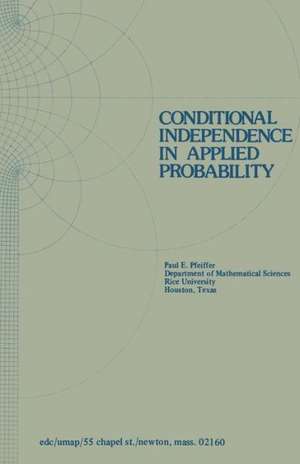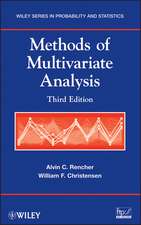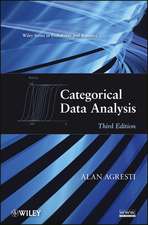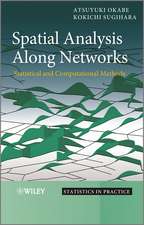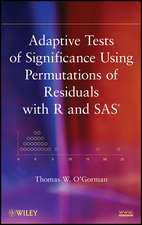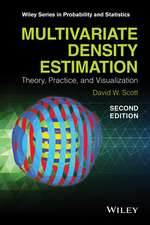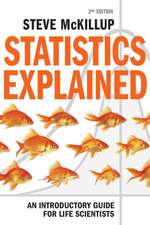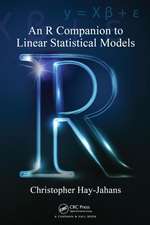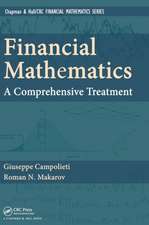Conditional Independence in Applied Probability: Modules and Monographs in Undergraduate Mathematics and Its Applications
Autor P. E. Pfeifferen Limba Engleză Paperback – 9 noi 2011
Preț: 378.92 lei
Nou
Puncte Express: 568
Preț estimativ în valută:
72.53€ • 78.81$ • 60.96£
72.53€ • 78.81$ • 60.96£
Carte tipărită la comandă
Livrare economică 21 aprilie-05 mai
Preluare comenzi: 021 569.72.76
Specificații
ISBN-13: 9781461263371
ISBN-10: 1461263379
Pagini: 168
Ilustrații: IX, 158 p.
Dimensiuni: 140 x 216 x 9 mm
Greutate: 0.2 kg
Ediția:1979
Editura: Birkhäuser Boston
Colecția Birkhäuser
Seria Modules and Monographs in Undergraduate Mathematics and Its Applications
Locul publicării:Boston, MA, United States
ISBN-10: 1461263379
Pagini: 168
Ilustrații: IX, 158 p.
Dimensiuni: 140 x 216 x 9 mm
Greutate: 0.2 kg
Ediția:1979
Editura: Birkhäuser Boston
Colecția Birkhäuser
Seria Modules and Monographs in Undergraduate Mathematics and Its Applications
Locul publicării:Boston, MA, United States
Public țintă
ResearchCuprins
A. Preliminaries.- 1. Probability Spaces and Random Vectors.- 2. Mathematical Expectation.- 3. Problems.- B. Conditional Independence of Events.- 1. The Concept.- 2. Some Patterns of Probable Inference.- 3. A Classification Problem.- 4. Problems.- C. Conditional Expectation.- 1. Conditioning by an Event.- 2. Conditioning by a Random Vector-Special Cases.- 3. Conditioning by a Random Vector-General Case.- 4. Properties of Conditional Expectation.- 5. Conditional Distributions.- 6. Conditional Distributions and Bayes’ Theorem.- 7. Proofs of Properties of Conditional Expectation.- 8. Problems.- D. Conditional Independence, Given a Random Vector.- 1. The Concept and Some Basic Properties.- 2. Some Elements of Bayesian Analysis.- 3. A One-Stage Bayesian Decision Model.- 4. A Dynamic-Programming Example.- 5. Proofs of the Basic Properties.- 6. Problems.- E. Markov Processes and Conditional Independence.- 1. Discrete-Parameter Markov Processes.- 2. Markov Chains with Costs and Rewards.- 3. Continuous-Parameter Markov Processes.- 4. The Chapman-Kolmogorov Equation.- 5. Proof of a Basic Theorem on Markov Processes.- 6. Problems.- Appendices.- Appendix I. Properties of Mathematical Expectation.- Appendix II. Properties of Conditional Expectation, Given a Random Vector.- Appendix III. Properties of Conditional Independence, Given a Random Vector.- References.- Selected Answers, Hints, and Key Steps.
